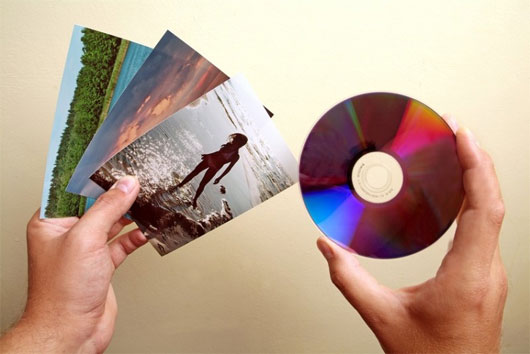Listening or seeing helps you remember longer?
(scienceinfo.net) - Our memory of sound is much worse than visual or tactile memory.
Do you remember the music you heard on the radio this morning? Or things that your husband or wife asked you to pick up? Maybe, you can't remember. Researchers have found that when it comes to memory, we can't remember what we hear well with the things we've seen or touched.
This is a finding by researchers at Inowa University.
'This is like a Chinese proverb:' I heard and I forgot, I looked and I remember ' , research lead author and Inowa University graduate student, James Bigelow commented.
'We tend to think that the parts of the brain are connected to make the memory integrated. But our findings show that human brains can use separate pathways to process information. Moreover, our study also shows that the brain may handle different auditory information than visual or tactile information, and alternate alternate strategies - for example, increased repeating nerves - may be necessary when trying to improve memory '. Amy Poremba, an associate professor at the Inowa University School of Psychology and one of the authors of the research paper, said. This research paper is published in this week's PLoS One.
Bigelow and Poremba have discovered that more than 100 students graduated from Inowa University have exposed a lot of sounds, images and things that can be felt, the students miss the most about the sounds they heard.
In an experiment to test short-term memory, participants were asked to listen to single sounds through headphones, looking at countless shapes of red squares, and feeling a slight vibration intensity. out due to an aluminum bar. Each sound group, square and vibration are separated by a different delay of 1 to 32 seconds.

Although the memory of these students is reduced overall when the time delay is longer, the memory loss of sound is greater, and begins immediately after 4 to 8 seconds after they come into contact. them.
While it seemed like it was a short time, it was like forgetting a phone number that was not written down, Poremba noted.'If someone gives you a phone number, and you dial the number right away, you usually do that. But do anything in between, betting that you'll forget that number, ' she said.
In the second experiment, Bigelow and Poremba examined the memory of participants by using things they could meet, interacting with every day. Students listened to recordings of dog barking, watched an unmarked basketball video (mute), and touched and held obscured objects out of sight, such as a cup the coffee. The researchers found that, in about an hour and a week later, the students remember less about the sound they had heard, but their memory of visual images and objects were touched. is the same.
Both of these tests show that the way the human brain processes and stores sound may be different from the way it handles and stores other forms of memory. And this can have great applications for educators, design engineers or advertisers.
'As teachers, we want to make students remember what we preach. But if you really want them to remember, you probably need images and hands-on experiments that complement the information with the teachings , 'Poremba said.
Previous studies have shown that people have superior visual memory, and listening to words associated with sound is better than just listening to the sound itself, which can support memory. Bigelow and Poremba's research is built on those studies, by asserting that we remember less about what we hear, regardless of whether the sound is associated with words.
This study is also the first to show that our ability to remember things we touch and touch is equal to our ability to remember what we see. This study is important because experiments with non-human primates like monkeys or chimpanzees show that they have superior visual and tactile memories, but struggle with auditory tasks. Based on these observations, the authors believe that it is possible that the origin of people remembering poor sound is from the evolution of the primates' brains.
The research was funded in part by the National Institutes of Health's National Institute on Deafness and Other Communication Disorders.
- Bad things always remember longer than good
- Why do we hardly remember our dreams?
- The startling effect of the habit of listening to music
- 7 reasons you should listen to music while exercising
- 10 jobs are extinct
- Taking a break helps you remember better
- Listening to sad music helps people feel happier?
- What happened when you tried to remember ...
- The relationship between literacy and the brain
- Listening to music during surgery helps protect brain cells
- Sleep helps people be smarter
- The boy remembered his previous life as a Martian
 Green tea cleans teeth better than mouthwash?
Green tea cleans teeth better than mouthwash? Death kiss: This is why you should not let anyone kiss your baby's lips
Death kiss: This is why you should not let anyone kiss your baby's lips What is salmonellosis?
What is salmonellosis? Caution should be exercised when using aloe vera through eating and drinking
Caution should be exercised when using aloe vera through eating and drinking